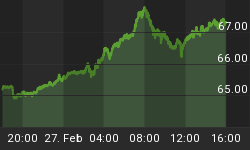Back in the late 1990's telecommunication companies such as Cisco, Nortel, and Lucent sold or, though various vendor financing schemes, pretended to sell, vast quantities of equipment to money losing start-ups. When the dotcoms officially went bust, the equipment, in many cases unused and in original packaging, came back onto the market to compete directly with newly manufactured products. As a result, telecom equipment prices and sales plunged, quickly turning sector profits into losses.
I am on record as having made this prediction well over a year before it actually occurred, and more recently made a similar prediction with respect to home builders, who are now competing with their own customers in a race to unload properties. Just like the telecommunications equipment makers, the home builders made the mistake of selling products to buyers who really could not afford them or were likely to re-sell them.
In both telecom and housing, demand was artificially enhanced. In the telecom sector, products were sold to cash rich start-ups that were merely burning through IPO proceeds. In the case of housing, demand was artificially pumped up by lax lending standards (such as zero down, interest-only, no doc, and negative amortization loans) and a widespread belief that the housing boom would last forever. As lending standards return and speculators become sellers, artificial demand will no longer exist. The result will be a glut of supply, as previously sold inventory comes back on the market.
The problems will be compounded as the builders continue to over-build even as it is obvious that demand is faltering. This self-serving strategy is necessary to maintain the illusion of future earnings so that insiders can exercise stock options and unload their shares, the prices of which have already been cut in half since their January highs. Unfortunately for investors, Wall Street keeps taking the bait hook, line and sinker.
Over the last few years of the real estate mania, builders used various tactics to help keep prices rising. By acquiring smaller competitors they gained a better control over distribution and maintained a firmer grip on pricing. Also, by introducing new developments in stages, and imposing lock-up periods on buyers, they could guide prices higher, maintaining the illusion of appreciation and thereby attracting more speculators into the market. But now that they are competing with their former customers they are losing control over pricing. Ultimately they will lead prices lower as they attempt to move inventory ahead of their over-leveraged former customers.
However, there are some key differences between the situation faced by telecommunications equipment makers of 2001 and homebuilders of 2006. Telecom equipment quickly becomes obsolete, which in turn allows demand for newer, more innovative equipment to return within a few years. However, a three-year old house is just as good as a new one, especially if it has never been occupied. As a result, companies like Toll Brothers, Pulte, and Lennar will likely fare far worse during the downturn than did Cisco, Lucent, and Nortel.
In addition, the economy in general is far more dependent on home building that it was on telecommunications manufacturing. Not only does the former create employment directly through construction, landscaping, remodeling, furnishing, etc, but also indirectly through real estate sales, appraisals and mortgage lending industries. In addition, the added spending power associated with home equity extractions helped create jobs and incomes across the entire spectrum of the American economy. Therefore, a decline in new construction and home prices will not only crush the home builders, but also the entire bubble-economy that their reckless behavior helped to artificially sustain.
Don't wait until the reality is obvious to all. Protect your wealth and preserve you purchasing power before it's too late. Discover the best way to buy gold at www.goldyoucanfold.com, download my free research report on the powerful case for investing in foreign equities available at www.researchreportone.com, and subscribe to my free, on-line investment newsletter at http://www.europac.net/newsletter/newsletter.asp.















